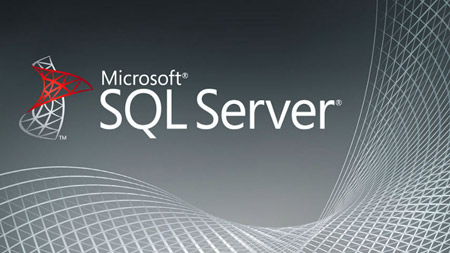
MS SQL Course Fee and Duration
| Track | Regular Track | Weekend Track | Fast Track |
|---|---|---|---|
| Course Duration | 45 - 60 Days | 8 Weekends | 5 Days |
| Hours | 2 hours a day | 3 hours a day | 6+ hours a day |
| Training Mode | Live Classroom | Live Classroom | Live Classroom |
This is an approximate course fee and duration for MS SQL Training. Please contact our team for current MS SQL Training course fee and duration.
Best MS SQL Training in Pitampura Delhi & Best MS SQL Training Institute in Pitampura Delhi
 4.90 out of 5
based on 9599 ratings.
5 Student Rating.
4.90 out of 5
based on 9599 ratings.
5 Student Rating.
APTECH Pitampura Delhi- the best MS SQL training institute in Pitampura Delhi provides the best MS SQL training in Pitampura Delhi based on the latest industry requirements and standards, Ans thus helps the students to acquire their dream jobs and best career in software development at various MNCs with attractive salary packages. APTECH Pitampura Delhi, Best computer training institute in Pitampura Rohini Delhi being the best MS SQL training provider is one of the Known MS SQL training institutes in Pitampura, Rohini Delhi which offers best in depth knowledge of MS SQL development and Best MS SQL Project Training with hands on practical knowledge helping the trainees to enhance their skills as per the industry requirements. The MS SQL course content here is designed and developed by professionals and it covers both the basic & advanced level MS SQL courses in Pitampura Delhi. Aptech Pitampura Delhi have Best Computer Trainers and they are matter specialists and corporate professionals with best of experience in managing, creating and directing the real-time MS SQL projects conduct MS SQL training courses in Pitampura Delhi, at APTECH Pitampura Delhi. The Aptech Pitampura Delhi a blend of academic learning and practical sessions including project work so as to give the learners best exposure in the process of MS SQL certification training course which further helps to transforms the learners into skilled software developers who easily recruited/acquire job within the industry and have promising future.
At APTECH Pitampura Delhi the MS SQL course syllabus includes the following topics: MS SQL Language Environment, Writing MS SQL Classes, Essentials of Object-Oriented Programming, Exception Handling, Packages, Java Fundamentals, Multithreaded Programming, developing Java APPS, Java Util Package / Collections Framework, I/O Operations in MS SQL, java framework struts 2, Spring MVC framework, Tapestry, Apache Axis, hibernate, JDOM, Java Applet, Google Web Toolkit (GWT), SiteMesh, Servlet API, Java training on real-time projects along with best placement training.
APTECH Pitampura Delhi's MS SQL certification course in Pitampura Delhi has been designed by professional as per latest industry requirements keeping in view the advanced MS SQL course content and whole syllabus is based on the professional requirement of the student in order to help them get placed in Multinational companies and achieve their career goals.
APTECH Pitampura Delhi is one of the Oldest MS SQL training centers in Pitampura Delhi with best infrastructure and lab facilities. APTECH Pitampura Delhi trains and develops best of MS SQL learners transforming them into thorough professionals at very reasonable MS SQL training fees, keeping in mind the training and course content requirement of each student.
APTECH Pitampura Delhi is the best MS SQL training institutes in Pitampura Delhi that provides 100% placement support and training to all students at affordable MS SQL training fees. APTECH Pitampura Delhi also provides fast track MS SQL training classes in Pitampura Delhi.
MS SQL training course content and Syllabus in Pitampura Delhi
Building the Database Schema
- Creating tables and columns
- Building tables with CREATE TABLE
- Modifying table structure with ALTER TABLE
- Adding columns to an existing table
- Removing tables with DROP TABLE
Protecting data integrity with constraints
- Guaranteeing uniqueness with primary key constraints
- Enforcing integrity with foreign key constraints
- Imposing business rules with check constraints
- Enabling and disabling constraints
- Removing constraints with ALTER TABLE
Improving performance with indexes
- Expediting data retrieval with indexes
- Recommending guidelines for index creation
Manipulating Data
- Modifying table contents
- Adding table rows with INSERT
- Changing row content with UPDATE
- Removing rows with DELETE
Applying transactions
- Atomic Consistent Isolated Durable (ACID) rules
- Controlling transactions with COMMIT and ROLLBACK
Writing Single Table Queries
- Retrieving data with SELECT
- Restricting rows with the WHERE filter
- Sorting the result with ORDER BY
- Handling NULL values in expressions
- Avoiding NULL value pitfalls in filter conditions
Querying Multiple Tables
- Applying the ANSI/ISO standard join syntax
- Matching related rows with INNER JOIN
- Including nonmatched rows with OUTER JOIN
- Creating a Cartesian product with CROSS JOIN
Combining results with set operators
- Stacking results with UNION
- Identifying matching rows with INTERSECT
- Utilizing EXCEPT to find nonmatching rows
Employing Functions in Data Retrieval
- Processing data with row functions
- Conditional formatting with the CASE expression
- Utilizing the CASE expression to simulate IF tests
- Dealing with NULL values
Performing analysis with aggregate functions
- Summarizing data using SUM, AVG and COUNT
- Finding the highest/lowest values with MAX and MIN
- Defining the summary level with GROUP BY
- Applying filter conditions with HAVING
Constructing Nested Queries
- Applying subqueries in filter conditions
- Correlated vs. noncorrelated subqueries
- Testing the existence of rows
Including subqueries in expressions
- Placing subqueries in the column list
- Creating complex expressions containing subqueries
- Handling subqueries that return no rows
Developing In-Line and Stored Views
- Breaking down complex problems
- Selecting data from a query result set
- Subqueries in the FROM clause
- Creating views in a database
- Building reusable code
- Updateable vs. non-updateable views





